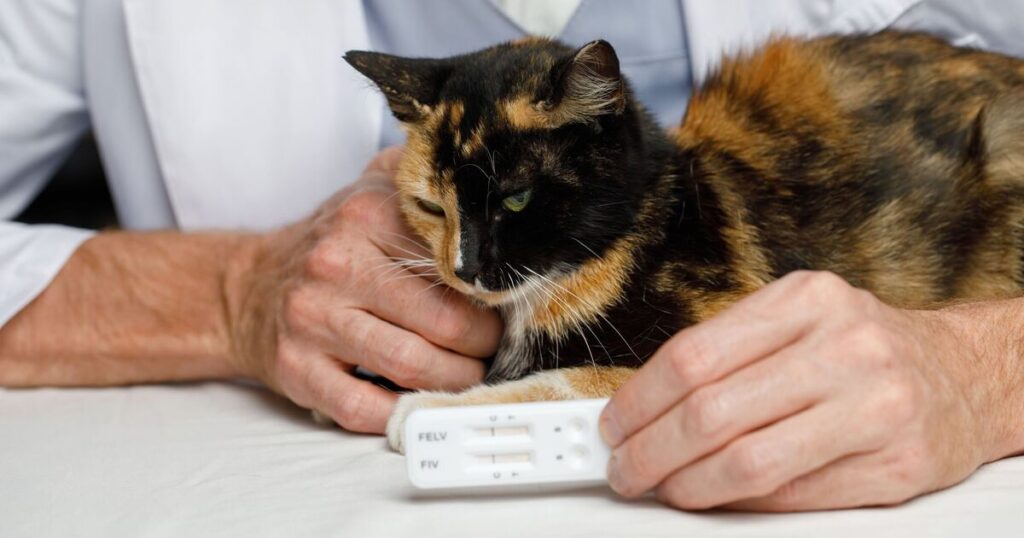
A vet has revealed three things he would do to prolong his cat’s life, if he owned one.
People are often keen to know what they can do to give their pets a long and healthy life. The average cat lifespan is between 13 to 17 years, according to PetMD.
The animal resource states on its website that some lucky felines have been known to live for 20 years or more. The world record holder for the oldest cat on record, named Creme Puff, lived to be 38-years-old.
Amir Anwary, a veterinarian based in South Africa, regularly shares pet care advice and tips on social media. He recently shared a video on TikTok explaining the three things he would do if he owned a cat.
Speaking in the video, he said: “So I don’t actually own a cat, but if I did own a cat these are a few things that I would do to make sure that it lives for as long as possible, and was as healthy as possible. Keep in mind some of these might be a bit controversial but this is my opinion as a vet.”
1. Hydrate the pellets (or use a water fountain)
The vet shared that the first thing he would do is hydrate their pellets because he claims cats were meant to get most of their hydration from the prey that they hunted, and are “not very efficient drinkers, so their ancestors, the desert cats, got “about 80 per cent of their water from the prey that they actually wanted.” Anwary says this means you need to add moisture to your cat’s food.
He recommends using a bone broth, or just adding some wet food to the food it is currently eating. The vet added: “Most cats end up being in states of chronic dehydration because they’re not drinking enough water, and this can lead to bladder problems and kidney issues, which are two of the most common issues we see in cats so definitely start hydrating your cat’s food.”
2. Reduce vaccines after the age of 9
Anwary then disclosed that he would stop vaccinating his cat when it reaches nine-years-old or vaccinate only once every three years, but he would definitely not vaccinate it every year. The reason behind this is certain studies have shown that cat vaccines contain anti-kidney antibodies, so they contain antibodies that “attack the kidneys”, according to the South African vet.
“I fear the kidney disease more than I fear those other diseases that we are vaccinating against.” PetMD explains on its website that cats are susceptible to many life-threatening illnesses and states that vaccination is the first and best method at protecting them from contracting many diseases, like feline leukaemia (FeLV), rabies and panleukopenia.
He highlighted that kidney problems are extremely common in cats and the exact reason for this is unknown, but there are several factors involved, and he said one of the predominant ones is the antibodies from the vaccines. Anwary continued: “So when my cat gets older, if it’s had all of its vaccines when it was young, I would actually stop vaccinating it at nine-years-old.”
However, it’s important to remember this is just one vet’s opinion. While there may be some flexibility in certain cat’s vaccine schedules based on their lifestyle and health, it’s generally advised to continue with vaccinations throughout a cat’s life, so it may be something you need to take advice on.
3. Omega 3
Anwary moved on to discuss omega 3: “And thirdly I would supplement my cat with a good quality omega 3 supplement with high levels of EPA and DHA without a doubt. Now the reason for this is your normal cat pellets don’t contain good quality omega 3.
“There is no regulation stating what kind of omega 3 needs to be in your cat pellets, so most companies will use cheaper sources of omega that don’t contain high levels of EPA and DHA. There’s often not even enough of it for it to actually have a therapeutic effect for your cats and omega 3 is so important.”
EPA and DHA are long chain omega 3 fatty acids and the vet noted that omega 3 is so important as he believes it’s good for skin, inflammation, kidney function and brain function. Anwary added: “Omega 3 is so, so essential but it is so deficient in your pelleted cat foods.
“It is without a doubt something I would add to my cat’s food every single day. I add it to my dog’s food now currently and that is simply the way it’s going to be for the foreseeable future.” The vet urged cat owners to make sure they use a good quality omega 3 supplement with high levels of EPA and DHA.
If you want to make changes to your cat’s diet or lifestyle, speak to your vet for advice first. They can help you based on your cat’s inidividual needs.
 Latest World Breaking News Online News Portal
Latest World Breaking News Online News Portal






